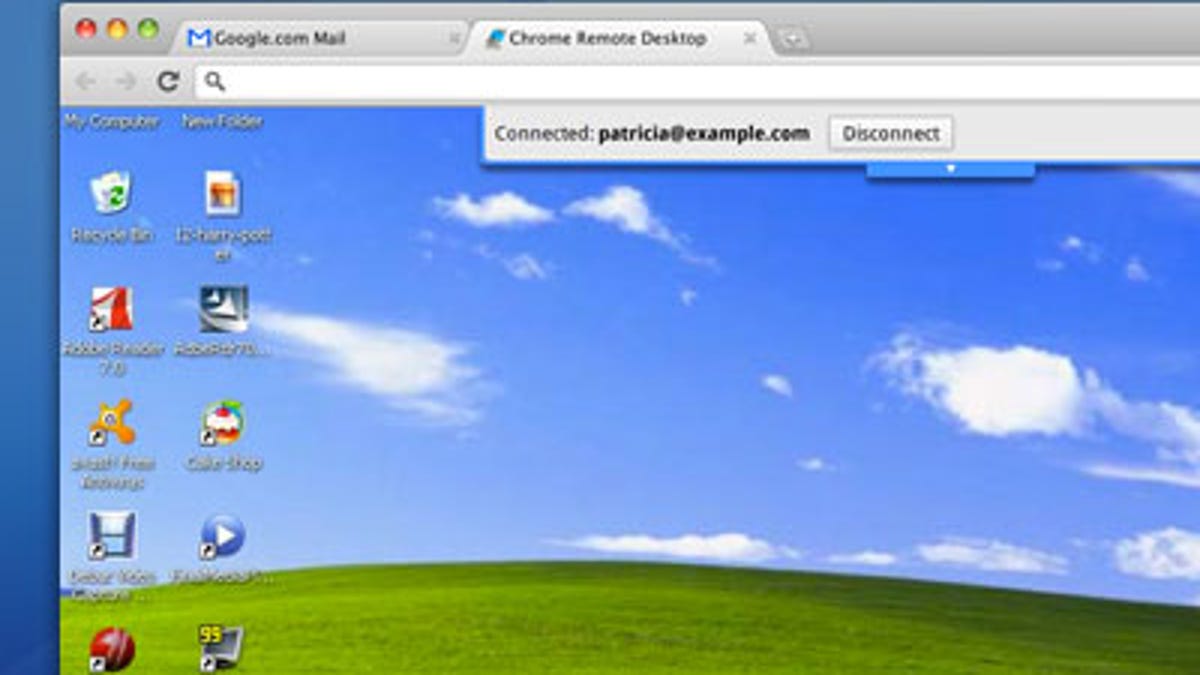Chrome extension enables remote computer control
Google's Chrome Remote Desktop extension lets a person with one machine running Chrome control another such machine. It should help make Chromebooks easier to manage.

Months of work on "chromoting" have reached fruition with Google's release on Friday of a new Chrome extension to let a person on one computer remotely control another across the network.
The Chrome Remote Desktop beta version, which arrived Friday, is a browser-based equivalent of remote desktop software for conventional operating systems. Such software is handy for IT administrators managing employees' machines, people taking care of their relatives' computers, or individuals getting access to their own machines from afar.
"Chrome Remote Desktop BETA is the first installment on a capability allowing users to remotely access another computer through the Chrome browser or a Chromebook," the release notes said. "Chrome Remote Desktop BETA is fully cross-platform, so you can connect any two computers that have a Chrome browser, including Windows, Linux, Mac, and Chromebooks."
It's that latter category that likely was a very important factor in the development of the technology. Google's Chrome OS is geared in part toward organizations that want to lower their computer administration costs, and remote management is an important factor when it comes to that goal.
The technology right now is limited so that permission must be granted each time remote administration is activated. "This version enables users to share with or get access to another computer by providing a one-time authentication code. Access is given only to the specific person the user identifies for one time only, and the sharing session is fully secured," the release notes said.
Updated at 11:17 p.m. PT: Here's a little detail about how the technology works from a Googler, Hin-Chung "Alpha" Lam, who described it on a Chrome mailing list today:
The protocol is something we designed and based on several google technologies:1. Bottom layer is p2p connection established by libjingle [a Google collection of peer-to-peer software tools], this can be UDP, TCP, or relay through Google.
2. We use PseudoTcp implementation in libjingle to provide reliable connection.
3. On top of that is SSL connection.
4. Protobuf [Google's protocol buffers software] is used for structured data and framing.
5. Graphics is encoded using VP8 [Google's video codec].
Added Sergey Ulanov, "There is no spec for the protocol yet, but we will probably publish something as the protocol matures. The implementation is open-source," with source code available through the Chromium project that underlies Chrome.
Via Erica Joy
